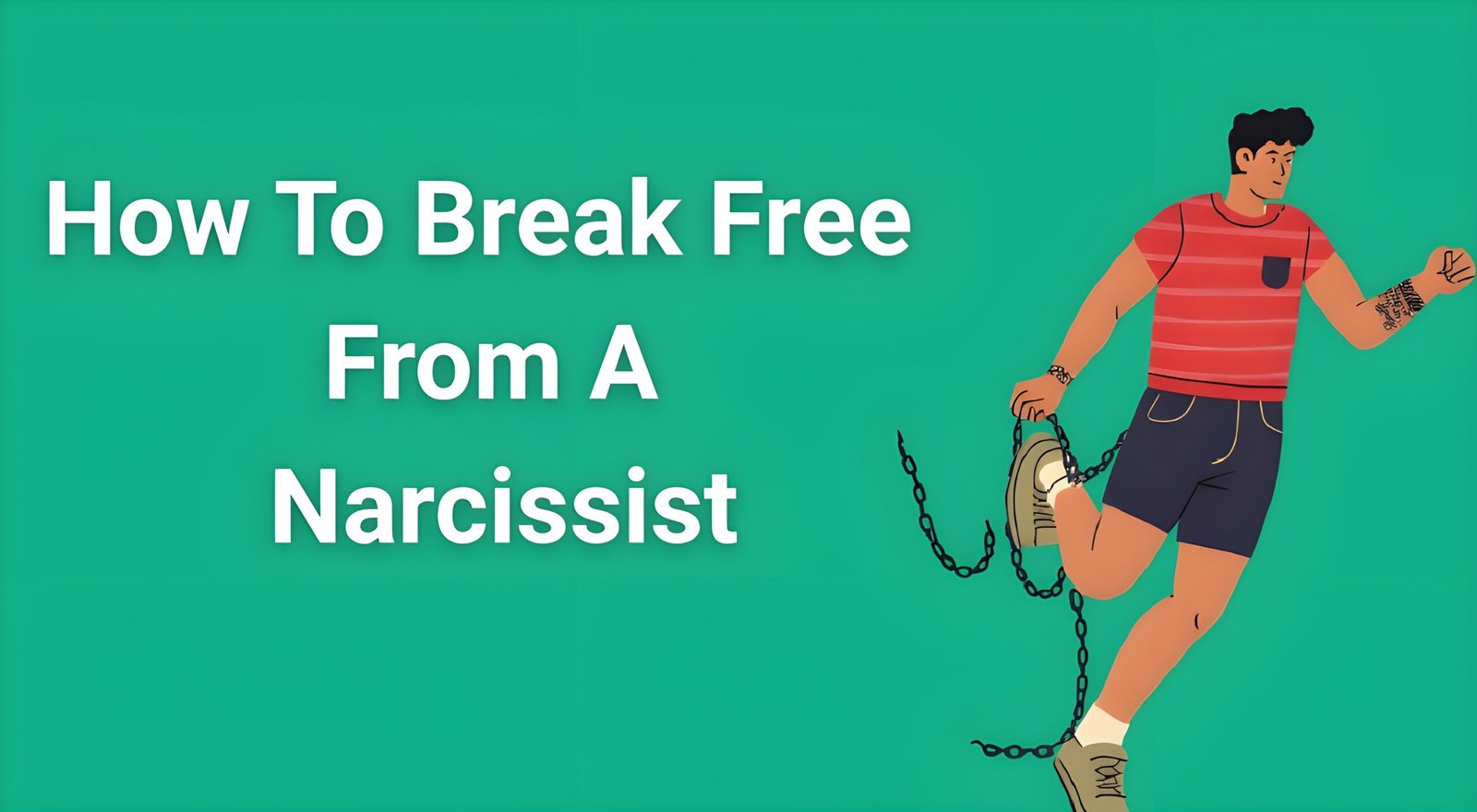If you’re desperately googling “how to deal with a narcissist ex” at 3 AM, feeling like you’re losing your mind, you’re not alone. The confusion, the obsessive thoughts, the inexplicable pull back to someone who hurt you – this isn’t weakness. You’re dealing with trauma bonding, a neurological addiction that’s stronger than cocaine.
- Why Dealing With a Narcissistic Ex Feels Impossible
- Immediate Safety and Protection Strategies
- Breaking the Trauma Bond: The Neurological Approach
- Communication Strategies When Contact Is Unavoidable
- Co-Parenting With a Narcissistic Ex
- Long-Term Healing and Recovery Strategies
- Red Flags: Recognizing Hoovering and Manipulation
- Building Your Support System
- Preventing Future Narcissistic Relationships
- The Legal Aspects of Dealing With a Narcissistic Ex
- Technology and Social Media Management
- Self-Care During the Recovery Process
- FAQs About Dealing With a Narcissistic Ex
- Conclusion: Your Journey to Freedom Starts Now
Learning how to deal with a narcissist ex isn’t just about moving on from a bad relationship. It’s about understanding the psychological warfare you’ve survived and developing specific strategies to break free from patterns that can keep you trapped for years.
The truth is, your narcissistic ex has rewired your brain through intermittent reinforcement – cycles of cruelty followed by kindness that create an addiction-like bond. But with the right approach, you can reclaim your power and heal completely.
Why Dealing With a Narcissistic Ex Feels Impossible
Before diving into strategies for how to deal with a narcissist ex, it’s crucial to understand why this feels so different from other breakups. Narcissistic abuse creates specific neurological changes that make leaving feel literally impossible.
The Trauma Bond Trap
When someone asks how to deal with a narcissist ex, they’re often fighting against trauma bonding – an emotional attachment formed through repeated cycles of abuse and affection. Your brain literally believes you need this person to survive.
During the relationship, your narcissistic ex used intermittent reinforcement (unpredictable rewards and punishments) to create powerful neural pathways. These pathways release dopamine when you think about them, similar to drug addiction.
This explains why:
- You obsessively check their social media despite the pain
- You break “no contact” even when you know better
- You feel physically ill when trying to stay away
- Everyone’s advice to “just move on” feels impossible
The Gaslighting Residue
Narcissistic abuse includes systematic gaslighting that makes you question your own reality. Even after the relationship ends, you might find yourself thinking:
- “Maybe I was too sensitive”
- “Maybe they really did love me”
- “What if I could have tried harder?”
This self-doubt is programmed, not natural. Learning how to deal with a narcissist ex means reclaiming your ability to trust your own perceptions.
Immediate Safety and Protection Strategies
When learning how to deal with a narcissist ex, safety comes first. Narcissists often escalate their behavior after relationships end, especially if you initiated the breakup.
Create Physical and Digital Boundaries
Implement No Contact Properly:
- Block them on all social media platforms
- Change your phone number if necessary
- Inform mutual friends about your boundaries
- Use a different email address for important accounts
Document Everything: If you share children or have legal entanglements, document all interactions. This includes:
- Screenshots of threatening messages
- Records of missed visits or support payments
- Witnesses to concerning behavior
- Time-stamped photos of any harassment
Protect Your Mental Space
Information Diet: Stop consuming information about your narcissistic ex. This means:
- No social media stalking (even through friends’ accounts)
- No asking mutual friends for updates
- No driving by their house or workplace
- No listening to “your song” or visiting “your places”
Each time you seek information about them, you’re reinforcing the trauma bond. Breaking this cycle is essential when learning how to deal with a narcissist ex.
Breaking the Trauma Bond: The Neurological Approach
Traditional breakup advice doesn’t work with narcissistic abuse because you’re not dealing with normal attachment – you’re dealing with neurological addiction. Here’s how to rewire your brain:
Understanding the Withdrawal Process
When you truly commit to no contact with a narcissistic ex, expect withdrawal symptoms similar to drug addiction:
- Intense cravings to contact them
- Physical symptoms (nausea, headaches, sleep issues)
- Emotional flooding (anger, sadness, fear)
- Obsessive thoughts and memories
These symptoms are temporary but intense. The peak typically occurs around days 3-7, with significant improvement by day 14-21.
The 30-Day Neurological Reset
Days 1-7: Crisis Mode
- Use the 90-second rule: Emotions last 90 seconds unless you re-trigger them
- When cravings hit, set a timer for 90 seconds and breathe through it
- Have emergency contacts ready for weak moments
- Practice grounding techniques (5-4-3-2-1 sensory method)
Days 8-14: Building New Patterns
- Replace checking their social media with a healthier habit
- Start journaling to process emotions without contacting them
- Begin light exercise to release natural endorphins
- Practice reality testing exercises
Days 15-21: Cognitive Restructuring
- Challenge thoughts that idealize the relationship
- Remember specific incidents of abuse or manipulation
- Practice loving-kindness meditation for yourself
- Connect with supportive friends or communities
Days 22-30: Identity Rebuilding
- Rediscover interests you abandoned during the relationship
- Set small, achievable goals unrelated to them
- Practice setting boundaries in other relationships
- Consider professional support if needed
If you’re struggling with this process, specialized resources like a comprehensive trauma bond recovery system can provide day-by-day guidance through the neurological rewiring process.
Communication Strategies When Contact Is Unavoidable
Sometimes learning how to deal with a narcissist ex includes situations where complete no contact isn’t possible – such as co-parenting, shared business interests, or legal proceedings.
The Gray Rock Method
The gray rock technique involves making yourself as boring and unresponsive as possible during necessary interactions:
How to Gray Rock:
- Keep responses brief and factual
- Show no emotional reaction to provocations
- Avoid sharing personal information
- Don’t defend yourself against false accusations
- Stick to business only
Example Gray Rock Responses:
- Instead of: “I can’t believe you would say that about me!”
- Try: “Okay.”
- Instead of: “You’re wrong about what happened!”
- Try: “I see it differently.”
Setting Communication Boundaries
Use Technology to Your Advantage:
- Communicate only via email or text for documentation
- Use a parenting app if co-parenting
- Set specific times for checking/responding to messages
- Never respond immediately to emotional manipulation
The Information Diet: Share nothing personal about your life, relationships, work, or feelings. Your narcissistic ex will use any information as ammunition or manipulation material.
Co-Parenting With a Narcissistic Ex
If you share children, learning how to deal with a narcissist ex becomes even more complex. The key is shifting from co-parenting to parallel parenting.
Parallel Parenting vs. Co-Parenting
Co-parenting requires:
- Mutual respect and communication
- Shared decision-making
- Flexibility and compromise
Parallel parenting allows:
- Minimal direct contact between parents
- Clear, detailed parenting plans
- Separate parenting styles in each home
- Protection from ongoing manipulation
Protecting Your Children
What NOT to Do:
- Don’t speak negatively about their other parent
- Don’t use children as messengers
- Don’t pump them for information about the other household
- Don’t make them choose sides
What TO Do:
- Create a safe, stable environment in your home
- Teach emotional regulation skills
- Validate their feelings without criticism
- Consider therapy for children if needed
- Document concerning behaviors objectively
Children of narcissistic parents often struggle with confusion and loyalty conflicts. Professional guidance can help you navigate these challenges while protecting your children’s emotional well-being.
Long-Term Healing and Recovery Strategies
Learning how to deal with a narcissist ex extends far beyond the initial breakup. True healing involves addressing the deeper patterns that made you vulnerable to narcissistic abuse in the first place.
Rebuilding Your Identity
Narcissistic abuse systematically erodes your sense of self. Recovery involves:
Reconnecting With Your Authentic Self:
- List qualities you possessed before the relationship
- Pursue interests that were discouraged or criticized
- Practice making decisions without seeking approval
- Trust your instincts and feelings
Developing Self-Compassion:
- Challenge the inner critic (often your ex’s voice internalized)
- Practice speaking to yourself as you would a dear friend
- Recognize that healing isn’t linear
- Celebrate small victories
Understanding Your Vulnerability Patterns
Honest self-reflection helps prevent future narcissistic relationships:
Common Vulnerability Factors:
- People-pleasing tendencies
- Fear of abandonment
- Childhood trauma or neglect
- Low self-esteem or self-worth issues
- Tendency to over-give in relationships
Understanding these patterns isn’t about self-blame – it’s about empowerment. When you know your vulnerabilities, you can protect them.
Professional Support Options
Sometimes learning how to deal with a narcissist ex requires professional guidance. Consider therapy if you’re experiencing:
- Chronic depression or anxiety
- PTSD symptoms (flashbacks, nightmares, hypervigilance)
- Difficulty functioning in daily life
- Substance abuse as a coping mechanism
- Thoughts of self-harm
Types of Therapy That Help:
- Trauma-focused therapy (EMDR, CPT)
- Cognitive-behavioral therapy (CBT)
- Dialectical behavior therapy (DBT)
- Support groups for abuse survivors
If you’re seeking immediate clarity about your specific situation, professional analysis can help you understand exactly what you’re dealing with and create a personalized recovery plan.
Red Flags: Recognizing Hoovering and Manipulation
Part of learning how to deal with a narcissist ex involves recognizing their predictable patterns of trying to regain control over you.
Common Hoovering Tactics
“Hoovering” (named after the vacuum) refers to attempts to suck you back into the relationship:
Love-Bombing Return:
- Sudden expressions of love and regret
- Promises to change or seek therapy
- Gifts, flowers, or romantic gestures
- Claims that they “finally understand” what went wrong
Crisis Manipulation:
- Fake emergencies or health scares
- Financial crises requiring your help
- Claims of depression or suicidal thoughts
- Using children as pawns to force contact
Intermittent Contact:
- “Innocent” messages on holidays or birthdays
- Social media likes or comments
- Showing up at places you frequent
- Using flying monkeys (friends/family) to gather information
The Smear Campaign
Expect your narcissistic ex to launch a character assassination campaign:
- Telling mutual friends lies about the relationship
- Playing the victim and claiming you were abusive
- Attempting to turn your children against you
- Spreading rumors about your mental health or behavior
How to Handle Smear Campaigns:
- Don’t defend yourself to every person who hears lies
- Trust that people who truly know you will see through the manipulation
- Document false statements for legal purposes if necessary
- Focus on building new, healthy relationships
Building Your Support System
Learning how to deal with a narcissist ex is much easier with proper support. Unfortunately, narcissistic abuse often leaves you isolated, making rebuilding connections essential.
Finding Understanding Support
Not everyone will understand what you’ve been through. Seek support from:
- Other survivors of narcissistic abuse
- Therapists specializing in trauma
- Support groups (online or in-person)
- Friends who validate your experience
Avoid seeking support from:
- People who suggest you “just get over it”
- Mutual friends who maintain relationships with your ex
- Family members who dismiss emotional abuse
- Anyone who suggests you share blame for the abuse
Educating Your Support Network
Help your supporters understand narcissistic abuse by sharing resources about:
- Trauma bonding and why leaving is difficult
- The cycle of idealization, devaluation, and discard
- Why normal relationship advice doesn’t apply
- The long-term effects of psychological abuse
Creating New Connections
Safe Ways to Meet New People:
- Join hobby groups or classes
- Volunteer for causes you care about
- Attend support group meetings
- Try therapy groups focused on relationship recovery
Take rebuilding slowly. Your ability to trust and connect has been damaged and needs time to heal.
Preventing Future Narcissistic Relationships
An important part of learning how to deal with a narcissist ex involves ensuring you don’t repeat the pattern with someone new.
Early Warning Signs to Watch For
Love-Bombing Red Flags:
- Excessive compliments and attention very early
- Rushing physical or emotional intimacy
- Claiming you’re “soulmates” after knowing you briefly
- Showering you with gifts or grand gestures
Control and Boundary Issues:
- Wanting to know your whereabouts constantly
- Discouraging relationships with friends or family
- Making decisions for you without asking
- Reacting poorly when you say “no”
Lack of Empathy Indicators:
- Dismissing your feelings or concerns
- Making everything about them
- Lack of close, long-term friendships
- History of “crazy” exes (they’re all “crazy”)
Developing Your Intuition
Narcissistic abuse teaches you to doubt your instincts. Recovery involves learning to trust your gut feelings again:
Practice Tuning In:
- Notice physical sensations during interactions
- Pay attention to how you feel after spending time with someone
- Trust feelings of unease, even if you can’t explain them
- Don’t override red flags with logical explanations
Setting Healthy Boundaries
Essential Boundaries for Future Relationships:
- The right to your own opinions and feelings
- Time to think before making decisions
- Maintenance of friendships and interests
- Financial independence and autonomy
- The right to say no without explanation
Practice setting small boundaries with safe people to rebuild this muscle before dating again.
The Legal Aspects of Dealing With a Narcissistic Ex
Sometimes learning how to deal with a narcissist ex involves legal action, especially when harassment, stalking, or threats are involved.
When to Consider Legal Action
Restraining Orders: Consider a restraining order if your narcissistic ex is:
- Making threats against you or your children
- Showing up at your home or workplace uninvited
- Following or surveilling you
- Harassing you through multiple channels after being asked to stop
Documentation for Legal Purposes:
- Keep detailed records of all contact attempts
- Screenshot threatening or harassing messages
- Record dates, times, and witnesses to incidents
- Save voicemails and emails
Co-Parenting Legal Considerations
Modifying Custody Arrangements: If your narcissistic ex is using custody as a weapon:
- Document all missed visits or late pickups
- Record instances of children returning upset or with concerning stories
- Keep evidence of manipulation attempts
- Consider requesting supervised visitation if safety is a concern
Working With Family Court:
- Judges may not understand narcissistic abuse dynamics
- Present facts objectively without emotional language
- Bring documentation and witnesses when possible
- Consider hiring an attorney experienced with high-conflict cases
Understanding your legal rights and options provides another layer of protection as you learn how to deal with a narcissist ex.
Technology and Social Media Management
In today’s digital world, learning how to deal with a narcissist ex includes managing your online presence and digital boundaries.
Social Media Protection
Immediate Actions:
- Block your ex on all platforms (including professional networks)
- Change privacy settings to friends-only or private
- Remove tagged photos that include your ex
- Consider changing your profile name temporarily
Long-term Digital Hygiene:
- Think before posting locations or activities
- Be cautious about new friend requests from unknown accounts
- Use privacy settings for posts involving children
- Consider taking a social media break during early recovery
Digital Stalking and Harassment
Recognize Digital Harassment:
- Creating fake accounts to contact you
- Repeatedly viewing your social media stories
- Sending messages through various platforms after being blocked
- Using technology to track your location
Protection Strategies:
- Change passwords on all accounts
- Enable two-factor authentication
- Check your phone for spyware or tracking apps
- Consider getting a new phone number
Online Dating Considerations
When you’re eventually ready to date again:
- Don’t share your full name or location too quickly
- Google potential dates to check for red flags
- Trust your instincts about online behavior
- Meet in public places for initial dates
Self-Care During the Recovery Process
Learning how to deal with a narcissist ex is emotionally and physically exhausting. Proper self-care isn’t selfish – it’s essential for healing.
Physical Self-Care
Trauma Lives in the Body:
- Regular exercise helps process stress hormones
- Adequate sleep supports emotional regulation
- Proper nutrition fuels healing
- Avoid excessive alcohol or substances
Specific Practices:
- Yoga or gentle stretching for trauma release
- Walking in nature for grounding
- Massage or other bodywork for reconnection
- Breathing exercises for anxiety management
Emotional Self-Care
Processing Difficult Emotions:
- Journaling for emotional release
- Art, music, or creative expression
- Crying when you need to (it’s healing)
- Allowing anger without acting on it destructively
Building Emotional Resilience:
- Meditation or mindfulness practices
- Gratitude exercises for perspective
- Self-compassion practices
- Setting realistic expectations for healing
Mental Self-Care
Protecting Your Mental Space:
- Limit exposure to triggering content
- Practice thought-stopping techniques for obsessive thinking
- Engage in activities that require focus and concentration
- Read books or listen to podcasts about healing
Cognitive Restructuring:
- Challenge negative self-talk
- Replace “what if” thinking with “what is”
- Practice accepting uncertainty
- Focus on what you can control
Remember, healing isn’t linear. Some days will be harder than others, and that’s completely normal when learning how to deal with a narcissist ex.
FAQs About Dealing With a Narcissistic Ex
How long does it take to get over a narcissistic ex?
Recovery from narcissistic abuse is highly individual, but most people see significant improvement within 6-12 months of implementing proper strategies. Trauma bonding can take 30-90 days to break with consistent no contact, while deeper healing of self-esteem and trust issues may take 1-2 years or longer. The key is focusing on daily progress rather than expecting linear healing.
Will my narcissistic ex ever leave me alone?
Narcissists typically cycle through attempts to regain control, especially if you were a significant source of narcissistic supply. They may disappear for months then suddenly reappear with hoovering attempts. Strong boundaries, consistent no contact, and legal intervention when necessary usually reduce these attempts over time. Remember: their behavior reflects their issues, not your worth.
How can I tell if I’m trauma bonded to my narcissistic ex?
Signs of trauma bonding include: obsessively checking their social media despite pain, making excuses for their abusive behavior, feeling physically ill when attempting no contact, repeatedly breaking your own boundaries to contact them, and feeling addicted to the relationship despite knowing it’s harmful. If you feel unable to stay away despite logical reasons to do so, trauma bonding is likely present.
Should I tell my narcissistic ex why I’m leaving?
No. Narcissists cannot process relationship feedback the way healthy people can. Explaining your reasons gives them ammunition for manipulation, arguments to wear you down, and insight into your emotional triggers. When ending the relationship, keep explanations brief and factual, then implement no contact immediately.
How do I handle mutual friends after leaving a narcissistic ex?
Expect some friends to believe your ex’s version of events or pressure you to reconcile. Set clear boundaries about not discussing your ex, and distance yourself from anyone who enables the abuse or shares information between you. Focus on building new friendships with people who understand abuse dynamics. True friends will support your healing without pressuring you to maintain contact with someone who hurt you.
Can a narcissist change with therapy?
While people with narcissistic personality disorder can sometimes learn to manage symptoms with intensive, long-term therapy, the core personality patterns rarely change significantly. More importantly, you cannot wait around hoping for change that may never come. Your healing and safety must take priority over their potential for growth.
How do I protect my children from a narcissistic co-parent?
Focus on creating a stable, emotionally safe environment in your home. Teach your children emotional regulation skills, validate their feelings without badmouthing their other parent, and document concerning behaviors objectively. Consider family therapy and be prepared to seek legal intervention if the other parent’s behavior significantly harms the children.
Is it normal to miss my narcissistic ex despite the abuse?
Absolutely. Missing them is a normal part of trauma bonding and grief, not a sign that you should return. You may miss the idealization phase, the person they pretended to be, or simply the familiarity of the relationship. These feelings will decrease as you heal and build a healthier life without them.
Conclusion: Your Journey to Freedom Starts Now
Learning how to deal with a narcissist ex isn’t just about ending a relationship – it’s about reclaiming your life, your sanity, and your future. The confusion you feel, the difficulty letting go, the obsessive thoughts – none of this is weakness. You’re dealing with the aftermath of psychological manipulation that would affect anyone.
The most important thing to remember is that healing is possible. Every day you maintain no contact, every boundary you enforce, every moment you choose your wellbeing over their manipulation – you’re rewiring your brain and rebuilding your life.
The road ahead isn’t easy, but it leads to something beautiful: a life where you trust your own perceptions, where relationships feel safe and supportive, where you never again have to question your worth because someone else is unable to see it.
Your narcissistic ex counted on your confusion to maintain control. Now that you understand how to deal with a narcissist ex through education, boundaries, and proper support, that control is broken forever.
The person reading this has already survived the hardest part. You’ve lived through the manipulation, the gaslighting, and the emotional warfare. You’re stronger than you know, and your freedom is not just possible – it’s inevitable.
Your healing journey starts with the next healthy choice you make. And each choice after that gets easier, until one day you realize you’re not just surviving – you’re thriving.
The trauma bond ends here. Your freedom begins now.






